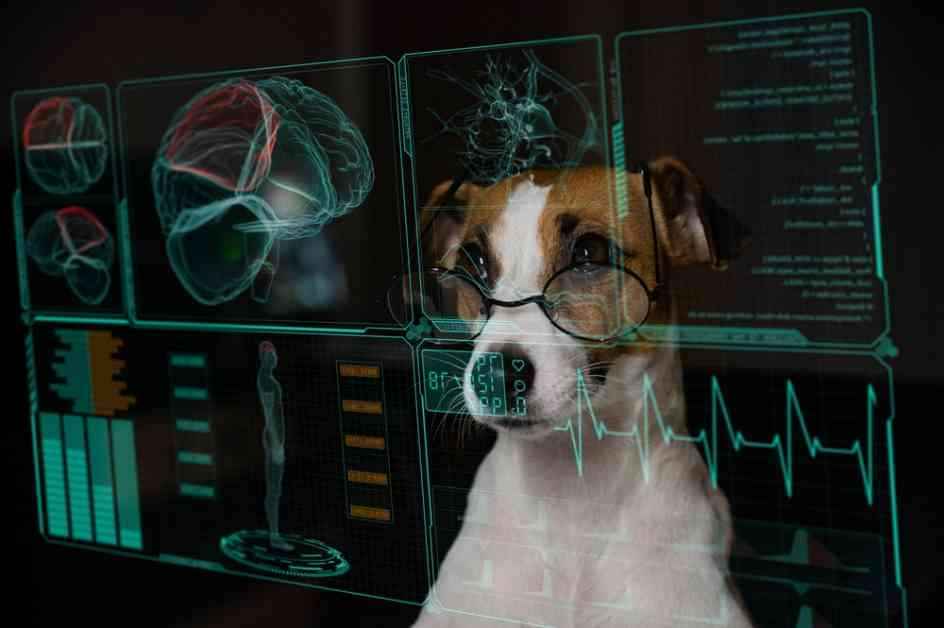Dr. Karyn, a seasoned veterinarian with a passion for helping animals, recently delved into the world of cutting-edge cancer treatment for dogs. As a firm believer in the power of experience and human touch in veterinary care, she had reservations about the increasing role of artificial intelligence (AI) in the field. However, her encounter with the team at ImpriMed, a groundbreaking diagnostic service utilizing AI for personalized chemotherapy protocols, challenged her perceptions and opened her eyes to the potential of this innovative technology.
Revolutionizing Cancer Treatment with AI
Cancer is a daunting word that can strike fear into the hearts of pet owners. Yet, with advancements in both human and veterinary medicine, treatment options for our furry companions are expanding. While chemotherapy has long been a staple in cancer treatment, Dr. Karyn was intrigued by a new approach that harnesses the power of AI to tailor treatment plans specifically for individual dogs. This innovative technique, developed by ImpriMed, caught her attention and prompted her to explore its capabilities further.
Dr. Karyn candidly shared her initial skepticism about AI, citing iconic science fiction portrayals of artificial intelligence as a source of her apprehension. As a vet and a writer, she expressed concerns about the potential implications of AI on education, creativity, and authenticity in various fields. However, her conversation with Dr. Ilona Holcomb and the team at ImpriMed shed light on a different side of AI—a side dedicated to improving cancer treatment outcomes for dogs.
The Science Behind Personalized Chemotherapy
Traditionally, chemotherapy involves administering cytotoxic chemicals to target rapidly dividing cells, including cancerous ones. However, the lack of specificity in traditional chemotherapy can lead to adverse side effects in non-targeted cells. ImpriMed’s approach takes a personalized route by utilizing AI to analyze neoplastic cells from individual patients and identify the most effective chemotherapy drugs for their specific cancer type. This tailored protocol minimizes guesswork, reduces side effects, and enhances treatment efficacy.
ImpriMed’s AI technology operates similarly to a culture and sensitivity test in infection treatment, isolating cancer cells and testing multiple drug combinations to determine the most potent treatment. By predicting how different cell lines may evolve, the AI program can optimize chemotherapy protocols for each dog’s unique cancer profile. This approach not only streamlines treatment planning but also offers a level of precision and efficiency previously unattainable through traditional methods.
Dr. Karyn was struck by Dr. Holcomb’s genuine passion for animal welfare and accessibility to cutting-edge technology. ImpriMed’s commitment to affordability and patient-centered care resonated with her, highlighting the potential of AI to enhance veterinary medicine while prioritizing ethical values. While acknowledging the limitations of AI in cancer treatment, Dr. Karyn recognized the invaluable role it plays in advancing the fight against canine lymphoma and leukemia, with plans for expansion to other common pet cancers on the horizon.
In conclusion, Dr. Karyn’s encounter with ImpriMed’s AI-driven approach to cancer treatment challenged her preconceptions and revealed a promising future for personalized veterinary care. Despite her initial reservations about AI, she found solace in the potential benefits it offers to pets facing cancer diagnoses. As she continues her journey with her five beloved dogs, Dr. Karyn remains hopeful that innovative technologies like those developed by ImpriMed will pave the way for improved outcomes and compassionate care in the field of veterinary oncology.






















